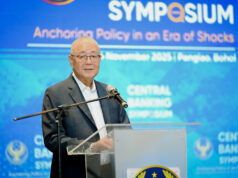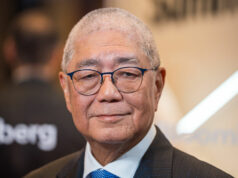Emerging markets face a brighter outlook after 2018
SINGAPORE — After starting the year on a high note, emerging-nation equities are poised for their fifth annual decline of the past decade.
The good news is that market players see clouds lifting — or at least clearing up some — for 2019.
Next year could see a “triple trend reversal,” with China policy easing feeding through to faster growth in the world’s No. 2 economy, a Federal Reserve pause in mid-2019 weakening the dollar and a hiatus in the US-China trade war, according to Morgan Stanley strategists led by Jonathan Garner. That scenario “benefits EM equities the most,” they wrote in double-upgrading the asset class to overweight relative to benchmarks from underweight.
Reduced US-China trade and investment tensions could be particularly helpful, after the escalation in the middle months of 2018, and the attendant slide in the Chinese yuan, exacted a body blow on the MSCI Emerging Market Index.
“Trade tensions have been a primary contributor to weakness in EM equities,” said Chetan Sehgal, a Singapore-based portfolio manager at Franklin Templeton Investments.
The magnitude of divergence between EM and US equities during 2018 is something “we find challenging to justify,” given how the impact of American tax cuts and profit repatriation will fade, he said.
Emerging-market valuations are approaching “crisis levels,” presenting a long-term buying opportunity, Mr. Sehgal said.
JPMorgan Chase & Co. strategists are among those projecting the MSCI index to climb, with a year-end 2019 call of 1,100 — about a 13% advance on current levels. The gauge is down almost 16% for 2018, the third-worst performance since the global crisis in 2008.
JPMorgan strategists including Pedro Martins Junior wrote last week that they favor Russia, thanks to its “valuation cushion,” Indonesia for “earnings resilience” and Brazil and Chile for rewards from “good policy-making.”
The asset class may also benefit from any pause in the Fed’s interest-rate hike campaign, which has hurt emerging nations thanks to higher Treasury yields and a stronger dollar.
While developing economies as a group have seen growth hold up in 2018, particularly in Asia, more costly borrowing costs have punished those that ran up dollar debt in recent years.
A Fed pause would encourage some investors to look at emerging markets again, after the equity class became relatively cheap, said Shigeki Sakaki, Nomura Asset Management Co.’s chief strategist in Tokyo.
The move back to emerging markets gained momentum last week as inflows to US-listed exchange-traded funds that invest across developing nations as well as those that target specific countries hit $1.28 billion, taking this year’s total to $20.5 billion, according to data compiled by the Bloomberg.
For Ross Cameron, head of Northcape Capital Ltd.’s Japan office in Tokyo, the key for emerging-market equities is the direction of the US dollar. He also warned against getting too optimistic about a Sino-American rapprochement. The deterioration in that bilateral relationship is “structural” and will continue to be a flash point for markets in 2019, he said.
JPMorgan strategists also viewed the trade war as a “wild card.”
Still, Gary Greenberg, head of emerging markets at Hermes Investment Management in London, had observed that the meeting of Presidents Xi Jinping and Donald Trump in Buenos Aires last week took place “in an atmosphere of low expectations”.
The bottom line: the betting for some is that things can only get better. — Bloomberg



